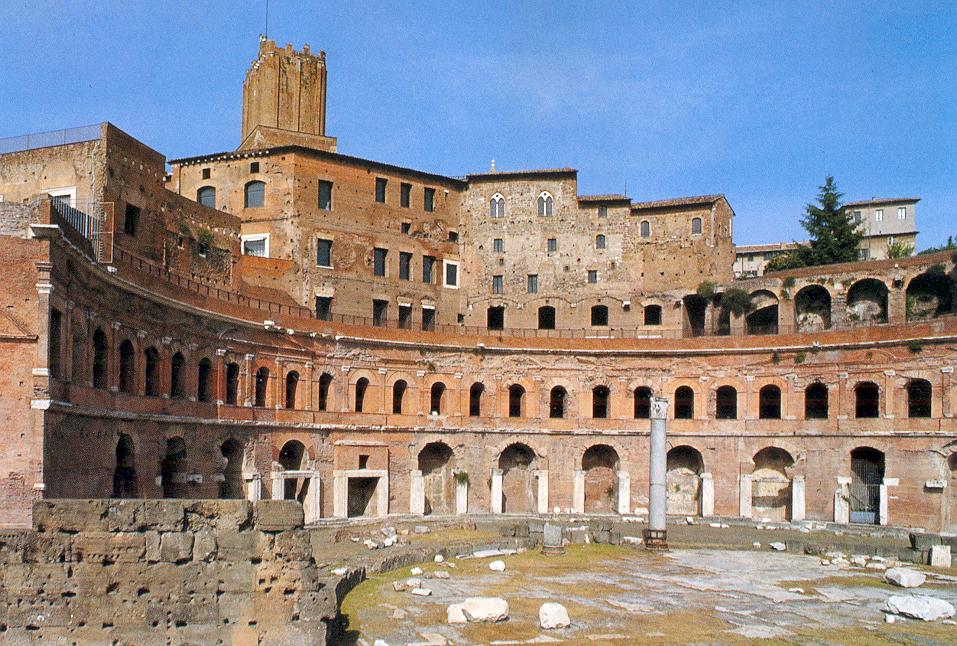A reader recently asked me if I could shed some light on the different forms that we use to express necessity. The best way to understand how we use these forms is by looking at practical examples. Allora, cominciamo!

Per costruire un muro c’è bisogno di mattoni. Trajan’s Market, Rome.
occorrere = to need
the verb occorrere is only used in the third person, both singular (occorre) and plural (occorrono).
Examples:
per fare il cemento occorre la sabbia = to make cement you need sand (literally: sand is needed)
per fare il cemento occorrono la sabbia e l’acqua = to make cement you need sand and water (literally: sand and water are needed)
per costruire un muro occorrono i mattoni = to build a wall you need bricks (literally: bricks are needed)
When followed by infinitives, or ‘che‘ and the subjunctive, occorrere is only used in the third singular person.
Examples:
per arrivare in tempo occorre partire presto = to get there on time it’s necessary to leave early
per superare gli esami occorre studiare e restare calmi = to pass exams one must study and remain calm
se volete prendere il treno delle otto occorre che vi alziate presto = if you want to catch the eight o’clock train you need to get up early
bisogno = need
bisogno is a masculine singular noun which is used in the same way as occorrere. You’ll hear it in the following two expressions:
a. c’è bisogno di (literally: there’s need for). N.B. The expression c’è bisogno di is impersonal and never changes.
Examples:
per costruire un muro c’è bisogno di mattoni = to build a wall you need bricks
per superare gli esami c’è bisogno di studiare e restare calmi = to pass exams one must study and remain calm
se volete prendere il treno delle otto c’è bisogno che vi alziate presto = if you want to catch the eight o’clock train you need to get up early
b. avere bisogno di (literally: to have need for)
In the expression avere bisogno di, the verb avere changes according to the person who has the need.
Examples:
abbiamo bisogno di mattoni per costruire il muro = we need bricks to build the wall
ho bisogno di pagare la bolletta del telefono = I need to pay the telephone bill
se volete prendere il treno delle otto avete bisogno di alzarvi presto = if you want to catch the eight o’clock train you need to get up early
bisogna = must, have to
bisogna is the third person singular of the redundant verb bisognare. It’s always followed by a verb, either in the infinitive or with ‘che‘ plus the subjunctive.
Examples:
bisogna pagare la bolletta del telefono = the telephone bill must be paid
per passare gli esami bisogna studiare molto = to pass exams you have to study a lot
se volete prendere il treno delle otto bisogna che vi alziate presto = if you want to catch the eight o’clock train you have to get up early
You can find out more about the difference between bisogna and bisogno HERE
I’ll be continuing this theme in my next post by looking at the use of essere necessario, volerci and metterci






Comments:
Ryan Fontanesi:
“Ci vuole” also works similarly doesn’t it? As in “Per fare il cemento ci vuole la sabbia.”
Donna:
@Ryan Fontanesi That would be volerci, coming in the next post.
Serena:
@Ryan Fontanesi As I said at the end of the post, in the next one I’ll be looking at the verb ‘volerci’.
Stay tuned! 😉
Ryan Fontanesi:
@Serena My bad. Need to read more closely.
Mike Rose:
Per fare il calcestruzzo occorre il cemento.
ma per fare il calcestruzzo occorrono anche la sabia e l’aqua.
per costruire un muro occorrono I mattoni e calcina al dente ?
Per fare tutto
ci vuole un fiore….ecc.
Serena:
@Mike Rose Ciao Mike! Bravo
Penso che per ‘calcina al dente’ intendi dire ‘la calce viva’
Saluti da Serena
Donna:
E “serve”? Si serve saperla.
Serena:
@Donna Salve Donna. Grazie, mi ero dimenticata di questo verbo, che ho aggiunto in part 2!
P.S. il verbo è servire. Servirsi significa usare.
Saluti da Serena